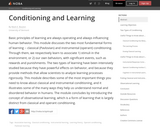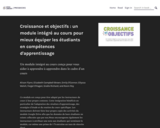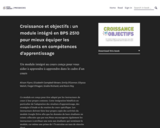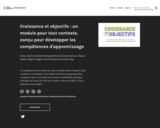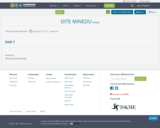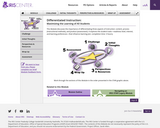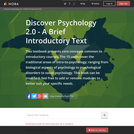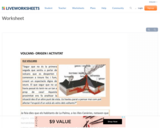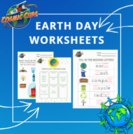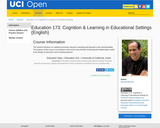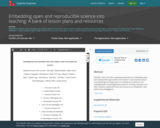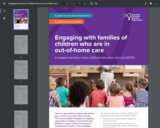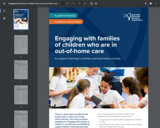The #GoOpen Blog is an opportunity for members to highlight the work of #GoOpen states and districts, so that we can learn from one another.
The following information is provided to help you craft your post. Please don’t hesitate to reach out to info@goopen.us with any questions.
Checklist:
Please include the following with your blog post submission:
Blog Title
Word Count – 400-600 words (but if you go shorter or longer, that’s fine!)
Photo, Caption, Attribution & Alt-Text – We’d like you to include a photo that aligns with the content of your post – this can be a photo that you’ve taken, or an openly licensed photo. Please provide a caption for the photo, the proper attribution (See https://wiki.creativecommons.org/wiki/Best_practices_for_attribution best practices for attribution), and alt-text that describes your photo for someone who may be using a screen reader (See https://webaim.org/techniques/alttext/#context best practices for writing alt-text.
Brief Author Bio – Provide a 1-2 sentence bio to let others know who you are and where you are from.
Additional Guidelines
Endorsements:As best practice, GoOpen.us posts and engagement should avoid endorsements of specific companies or products that are meant to promote commercial organizations or businesses. In some cases, mention of commercial entities may be acceptable if the purpose is not to sell products or services but is illustrate an example, further the learning of the group, or document the experience of a #GoOpen Network member and is relevant to the goals of the #GoOpen Initiative.
PII: Any and all personally identifiable information should be removed from the post.
Use: In addition to publishing your post on the #GoOpen Network blog, we will share your post via the #GoOpen Newsletter and social media and encourage you to do the same!
Submission
Email your blog post to info@goopen.us and cc:mailto:sara.trettin@ed.gov
We will review your post and offer suggested edits for clarity or conciseness.
Once you’ve reviewed our suggested edits and accepted any changes, we will schedule your post and let you know when it will be published!
Types of Posts
Not sure where to start? Consider one of these types of posts!
Informational Posts
What’s new in your state or district? Is there a new strategy or approach you are piloting? A topic you are exploring in-depth? An opportunity to collaborate with other states or districts? Informational posts are all about sharing your work with the community!
Reflective Posts
What’s your state or district learning? Has your district team been reflecting on your approach? What have you learned? How are you tweaking your implementation approach? Are you diving into the literature on a particular topic? Reflective posts provide an opportunity to take a step back and share what you are learning with the community!
List Posts
What tips, best practices, lessons learned, or key takeaways can you share that might be helpful for others in the community? These could focus on any aspect of your state or district OER work, for example, three key takeaways from the latest summit or five tips for communicating about your work to parents.
How-to Posts
Have you figured out the perfect approach for some aspect of OER implementation? Consider sharing a step-by-step how-to post that details your approach and any implementation resources so others can follow your lead!
Interview Posts
Have a rockstar teacher, librarian, admin or other OER champion in your state or district? Consider highlighting their work through a brief Q&A post.

